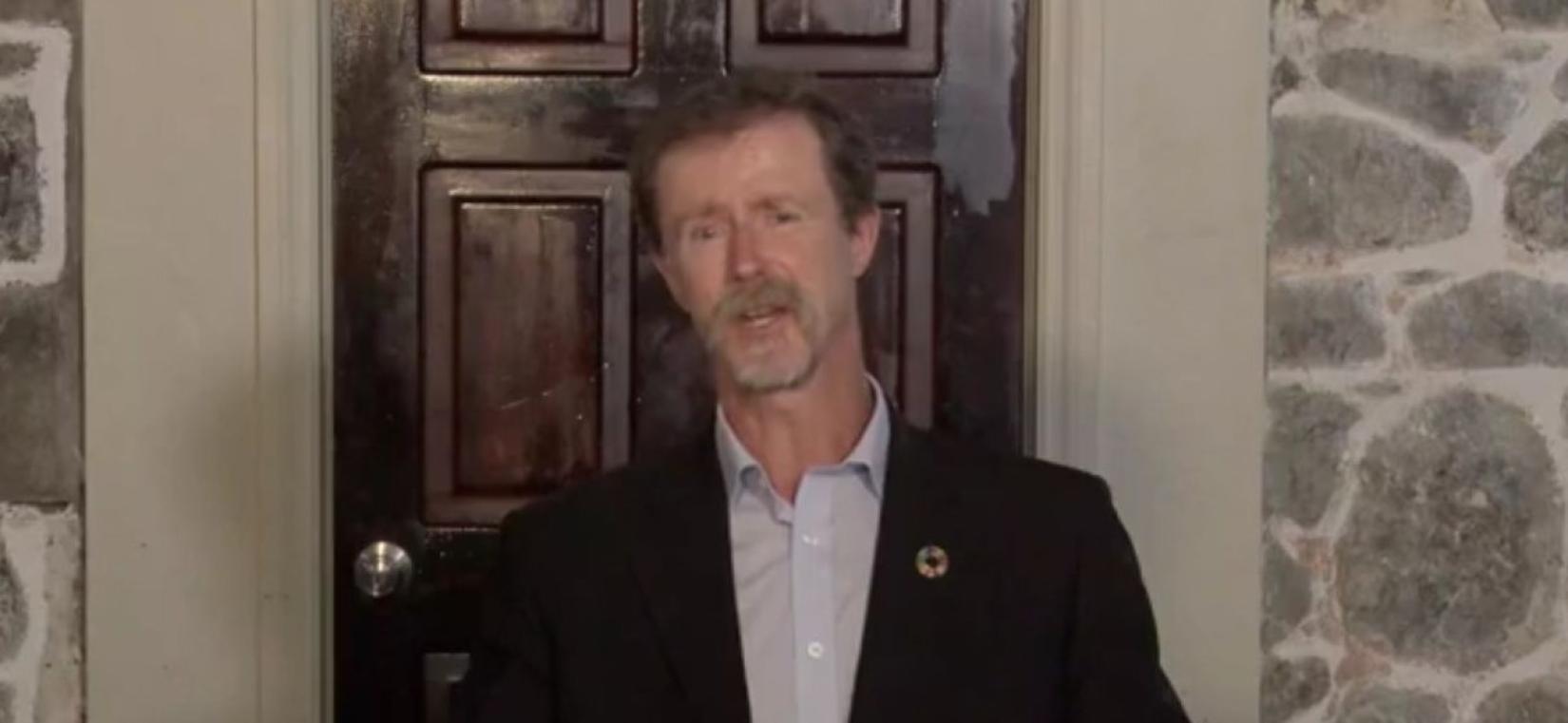Climate change a risk multiplier for impacts on human rights in Saint Vincent and the Grenadines says UN expert
02 December 2021

KINGSTOWN (2 December 2021) – Climate change is wreaking havoc on farms, forests, fisheries, housing, infrastructure and communities in Saint Vincent and the Grenadines, and in doing so violating the rights to life, health, food, water, housing, cultural rights and a clean, healthy and sustainable environment, a UN expert said today.
The UN Special Rapporteur on human rights and the environment, David R. Boyd, said a series of overlapping catastrophes in recent years, including a major volcanic eruption, hurricanes, severe floods and droughts, as well as COVID, had underscored the devastating impact of the climate crisis on small island states.
“Following the recent agreement reached at the Glasgow Climate Change Conference, wealthy nations of the world must accelerate their mitigation actions, boost climate finance to assist nations such as Saint Vincent and the Grenadines in their mitigation and adaptation efforts, and create a fund for loss and damages to enable recovery in climate vulnerable nations,” Boyd said in a statement at the end of his visit to Saint Vincent and the Grenadines.
Small island states have been among the world’s most outspoken voices in calling for urgent action to address the damage that climate change is inflicting on human health, human rights, and well-being at the same time as their contribution to climate change is minimal.
Saint Vincent and the Grenadines has ratified the Regional Agreement on Access to Information, Public Participation and Justice in Environmental Matters in Latin America and the Caribbean (Escazú Agreement) and needs to take concrete implementation actions to honour its commitments, Boyd said.
“The Escazú treaty should be used to guide the development of all climate- and environment-related initiatives, such as the environmental impact assessment process, ensuring that human rights are mainstreamed and the right to a clean, healthy and sustainable environment is fulfilled,” he said.
The expert also looked into other environmental issues with potential consequences for human rights, such as pollution, biodiversity and sustainable development planning. He was impressed by the progress being made in Saint Vincent and the Grenadines on many fronts, including clean water, solid waste management, and adapting to climate change.
“These are steps in the right direction, but it is important that additional steps are taken, particularly through implementing and enforcing environmental rules that protect human rights,” he added.
Boyd also emphasized the importance of environmental education, because understanding the ecological challenges facing society is a prerequisite to responsible citizenship. “Young people must be equipped with the knowledge, skills and opportunities to play an active role in shaping their future,” the expert said.
During his visit, Boyd met with Government officials, representatives of civil society and conducted field visits to sites including two landfills, a power plant, protected areas, and communities affected by natural disasters.
The Special Rapporteur will present a comprehensive report on the visit to the UN Human Rights Council.
ENDS
David R. Boyd (Canada) was appointed Special Rapporteur on human rights and the environment on 1 August 2018. He is an associate professor of law, policy, and sustainability at the University of British Columbia.@SREnvironment
The Special Rapporteurs are part of what is known as the Special Procedures of the Human Rights Council. Special Procedures, the largest body of independent experts in the UN Human Rights system, is the general name of the Council's independent fact-finding and monitoring mechanisms that address either specific country situations or thematic issues in all parts of the world. Special Procedures' experts work on a voluntary basis; they are not UN staff and do not receive a salary for their work. They are independent from any government or organization and serve in their individual capacity.
UN Human Rights, country page – Saint Vincent and the Grenadines
or more information and media requests, please contact: Ms Viktoria Aberg (viktoria.aberg@un.org) in Saint Vincent and the Grenadines or Ms Frederique Bourque (frederique.bourque@un.org) in Geneva.
For media inquiries related to other UN independent experts, please contact Renato Rosario De Souza (renato.rosariodesouza@un.org) or Jeremy Laurence (+ 41 79 444 7578 / jeremy.laurence@un.org)
Follow news related to the UN’s independent human rights experts on Twitter: @UN_SPExperts.
Concerned about the world we live in?
Then STAND UP for someone’s rights today.
#Standup4humanrights
and visit the web page at http://www.standup4humanrights.org




